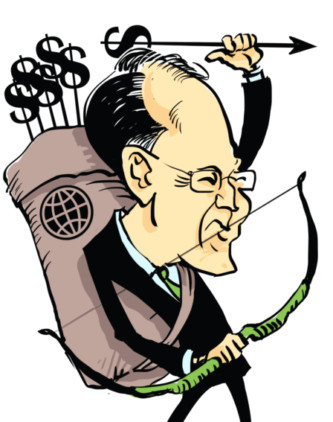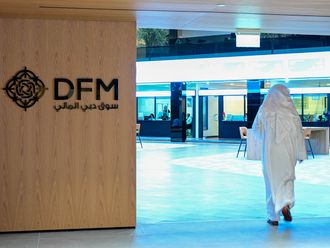
The World Bank’s new President, Kim Jim-yong, has taken command of an institution that is tasked with remaining relevant in a world that is struggling to be prosperous and equitable. Various analysts have questioned the impact of the Bank’s work in the modern world and its relevance going forward. With regional development banks playing a more active role in Asia and Africa, and national development agencies — such as those in Brazil and China — lending astronomical amounts each year, the World Bank risks sliding into irrelevance unless it swiftly adapts to the challenges of the current day.
It cannot be denied that the organisation faces enormous challenges — both internal and external. Our world has changed dramatically over the last two decades, with many formerly low-income countries now graduating to middle-income status. According to one study, more than 70 per cent of the world’s poor now live in these middle-income nations that are scattered across the world. Add to this equation the rapid rise of the Bric countries and it is plain that countries require more specialised and tailored assistance from global multilateral agencies such as the World Bank and the IMF. While the latter was able to reinvent itself over the last several years during the ‘Great Recession’, the former has seen little reform over the last few decades.
According to a recently published internal assessment report, what the Bank needs is a new long-term vision and purpose to respond to our new global landscape. Yet insiders describe an institution that is rapidly losing experienced staff by succumbing to pressures from shareholders — organisational policies are highly bureaucratic and often prioritise nationality ‘quotas’ over any real talent or passion for the hard work of development. Loans and assistance are lobbied for by governments, who sometimes see it as an extension of their geo-political priorities. But continuing with this muddling, archaic style is a gross disservice to the millions who stand to benefit from the breadth of the Bank’s reach. The institution that was shaped in the aftermath of the Second World War is in a very different economic and political climate and is quickly losing its competitive advantage, and must adapt quickly to stay relevant.
Change needed
There is much change needed, and Kim certainly has a tough task cut out. As a new President, he has a golden opportunity to identify the most pressing challenges facing the Bank and build consensus on a focused vision for reform. It is crucial to have a frank discussion with shareholders on the reforms that will be essential to remaining relevant, and present a comprehensive strategy on how to go about it effectively.
After all, with much working in the Bank’s favour, Kim has several arrows in his quiver. Besides the storied global reputation built over decades, massive clout with national governments in developing countries and unparalleled repository of data, the Bank houses two powerful organs within its fold. The IBRD, or public sector lending arm, still enjoys considerable demand for its products from a host of middle-income countries and the IFC, on the private sector side, retains the ability to invest directly in projects that have a strong on-the-ground impact and has been fairly successful pursuing its ‘double bottom-line’ mandate.
Despite this arsenal, however, past Presidents chose to expand the Bank’s focus and created an unwieldy, inefficient bureaucracy that has been severely criticised for catering to the political whims of donor governments. Kim needs to take bold decisions to re-align the organisation with its over-arching mission.
His first, and most important, task will be to urgently rally shareholder consensus around a long-range strategy and vision for reform in light of the new global economic and development landscape we face today.
Second, he will have to work closely with his senior officials to engineer a clearly focused operational model to execute this vision — which will involve tough decisions. None of this will be possible without reorganising the Bank’s most prized asset — its army of development practitioners. Kim will have to free the institution from its antiquated hiring and promotion policies and make the prospect of a career at the World Bank appealing and rewarding — both professionally and financially — to boost staff morale.
Existential questions
With those issues out of the way, Kim can begin to tackle some of the more critical, existential questions he faces. Should the Bank decentralise more of its operations to its independent field offices in order to boost its knowledge bank provide more relevant and tailored advice to clients and risk diffusing any sense of a common purpose? Or should they consolidate power and decision-making in Washington to better coordinate their global efforts? Furthermore, are the Bank’s current lending levels enough to make a meaningful global impact today? If not, Kim will have to sort out the Bank’s finances and chart how lending amounts be boosted while political pressure from donor governments on how that lending is applied, is curtailed.
Clearly, there’s much that we are expecting from Kim this year and he bears a serious responsibility to share and publicise his reform agenda. Perhaps then, we can all be convinced of the continuing relevance of that grand old institution called the World Bank.
— Rakesh Mani is a development banker and columnist.












